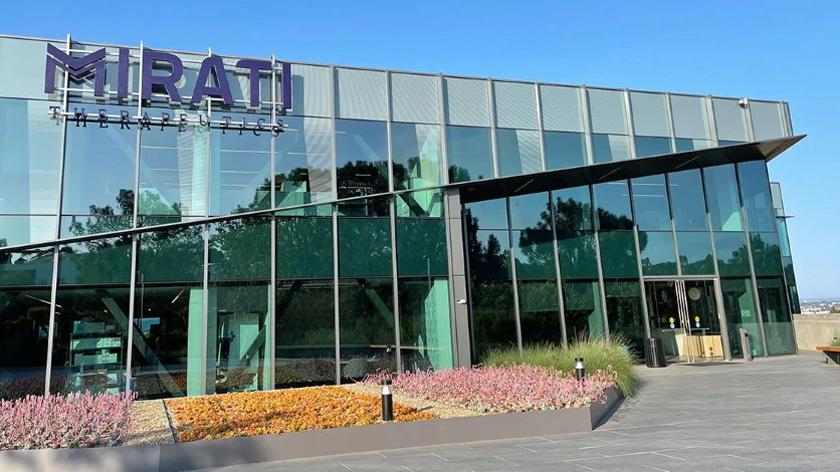Mirati challenges Amgen with FDA okay for KRAS drug

Amgen has its first direct competition in the KRAS inhibitor class following FDA approval of Mirati's adagrasib as Krazati for a form of lung cancer.
Krazati has been cleared as a treatment for patients with KRASG12C-mutated non-small cell lung cancer (NSCLC) after one prior systemic therapy – the same indication given to Amgen's Lumakras (sotorasib) when it became the first KRAS inhibitor to be approved in the US in May 2021.
While the wording on the label is almost the same, Mirati reckons its drug has an efficacy and pharmacodynamic profile that will help it catch up with Lumakras, which brought in $210 million in sales in the first nine months of this year, $75 million of that in the third quarter.
The company is pointing to an overall response rate of 44% with Krazati after 12.5 months, compared to 36% with Lumakras at 10 months, and median duration of responses of 12.5 and 10 months, respectively. Mirati also says its drug penetrates the central nervous system more readily, making it a better option for patients whose disease has metastasised to the brain.
Meanwhile, 43% of patients treated with adagrasib experienced serious treatment-related side effects, including increased levels of liver enzymes and anaemia, which compares to around 50% of patients on Amgen's drug.
Analysts have suggested, however, that the profile of the two drugs is very similar, leading to questions about how successful Mirati will be differentiating Krazati from its rival.
The biotech says it will launch its first drug with a monthly list price of around $19,700, in the same ballpark, but a little more than the $18,990 per month Amgen charges for Lumakras.
Investors seemed unmoved by the approval, with Mirati's shares static after the announcement and down almost three quarters since the start of the year amid concerns about the competitive profile of Krazati and questions about the company's strategy towards combination studies.
Initial data with Krazati plus Merck & Co's PD-1 inhibitor Keytruda (pembrolizumab), reported earlier this month, showed a 49% ORR with the pairing, prompting Mirati to plan a phase 3 trial as a first-line NSCLC therapy in patients with low PD-L1 expression.
While going after a PD-L1-positive group might make it easier to show efficacy, Mirati wants to position Keytruda/Krazati as a chemotherapy-free option for previously untreated NSCLC patients.
Keytruda plus chemo is currently the go-to first-line therapy for NSCLC, regardless of PD-L1 status. The FDA approval is conditional on a positive outcome from a phase 3 confirmatory trial – KRYSTAL-12 – which is scheduled to complete next year.
Meanwhile, Mirati is anticipating EU approval for Krazati sometime around the middle of 2023.











